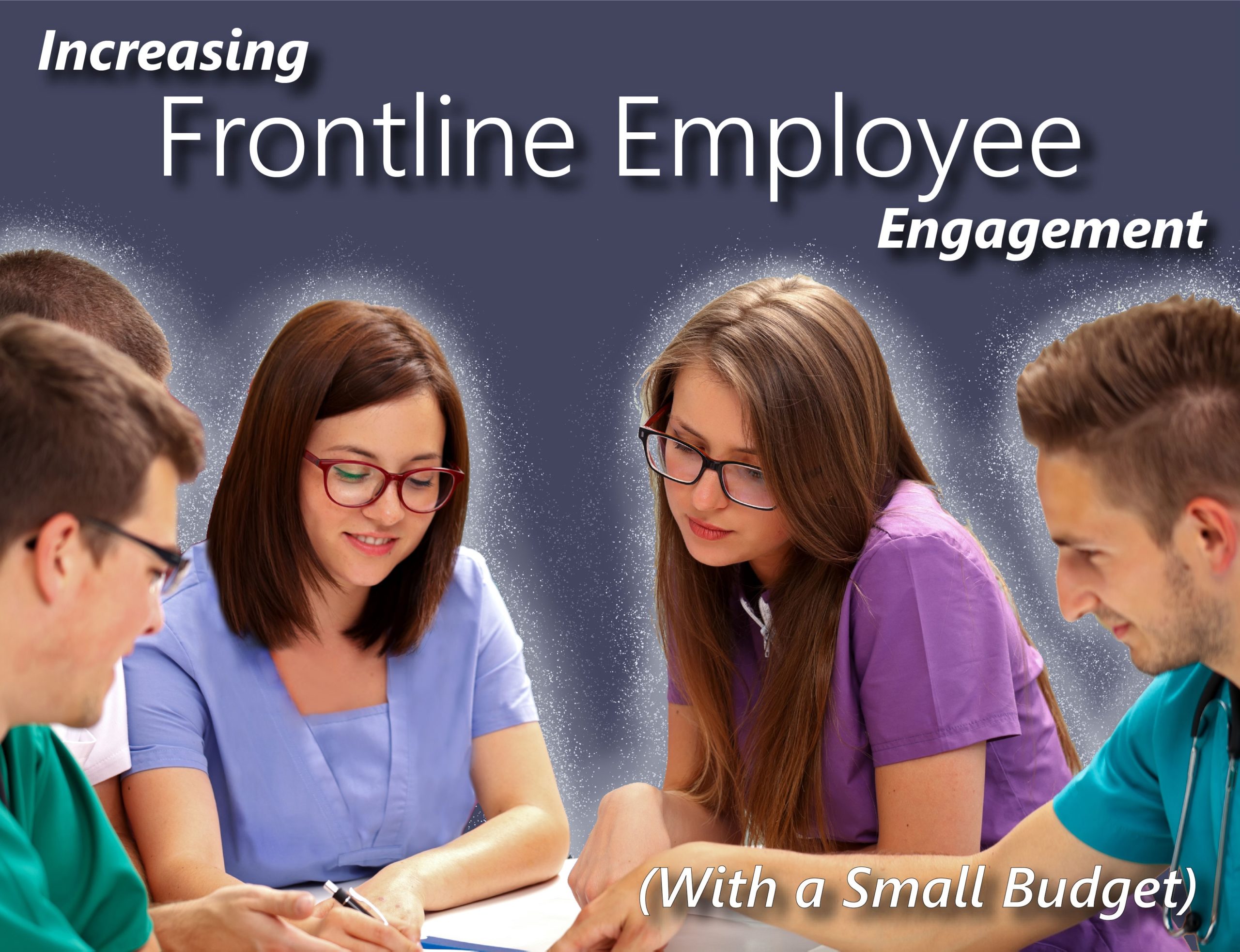High employee engagement is critical for success in U.S. hospitals and clinics where customer service is crucial. Engagement is more than just a “feel good” public relations objective. It’s about encouraging and facilitating the staff who serve patients, families, and internal customers to be their best and most energetic selves.

High engagement is also crucial for retention and reduction of absenteeism, and during times of full employment this is more important than ever. But what can be done to increase engagement, especially with tight budgets and pressures to do more with less?
The first thing is to make engagement a part of day-to-day culture:
- Show employees you care instead of just saying it
- Celebrate the good stuff that happens and challenges that are overcome
- Recognize milestones, make positive recognition part of the work
- Remind everyone on work teams that there’s a human side to our workplace experience
- Encourage managers to be empathetic while getting work done
Build organizational practices which support, maintain, and grow engagement. Open your organization up for feedback from employees, especially entry-level associates who may feel like they don’t have a say in company matters. Consider creating an associate-led committee so there is always input on the pulse of the organization. Also give employees feedback. By making feedback a natural and planned part of work life, organizations can give engagement a serious boost.
Another key tactic in increasing frontline employee engagement lies in associates’ relationship with their manager and how they are coached and encouraged. Health systems are looking for associates who will perform, grow, and provide good customer service, and this happens when their managers are partners who enable. Old school top-down supervisory relationships are becoming a relic. Huddles and training opportunities provide a forum for associates to interact and receive positive coaching. For more on this topic, see our related article “Frontline Employees: Coaching For Success.”
Leaders should also offer learning and development tools that support associate improvement and growth. This not only leads to more productive employees, but it also shows that the health system is interested in employees’ futures, boosting motivation. Be sure managers are communicating about internal training tools, learning & development, and apprenticeships. Communicate roles that are high priority needs of the system and any assistance that can be provided to help frontline employees with skills or accreditation needed to obtain those roles. Have a career path conversation with your entry-level associates before they are having that conversation with another employer.
Your frontline employees are the voice and spirit of your organization to patients and families. To infuse employee engagement into the heart of an organization, even with a small budget, root these “blocking and tackling” techniques right into the regular operations of your organization.
“7 Tips to Increase Employee Engagement Without Spending a Dime,” Society for Human Resources, Tamara Lytle, September 2016
“Top Five Budget-Friendly Employee Engagement Strategies,” Forbes, Char Newell, August 2018
“Employee Engagement Doesn’t Require a Huge Budget,” Cornerstone on Demand, Shayne Thomas, January 2020
“The 5 Most Successful Employee Engagement Strategies,” Onpoint Consulting, August 2019
“5 Steps Managers Should Be Taking After Employee Performance Reviews,” Susan Jeffery, June 2019
…
Are you familiar with CLiMB®? CLiMB supports the professional development for your entry and mid-level healthcare workers. CLiMB is an online library of focused microlearnings focused on actionable, scenario-based learning in basic professionalism, communication, using time wisely, and providing exceptional customer service. CLiMB teaches from real-world scenarios which frontline employees face in U.S. health systems. It includes tool to incorporate microlearning into onboarding, huddles and manager-employee coaching conversations. Contact Us to learn more.
